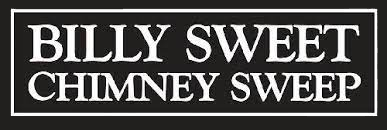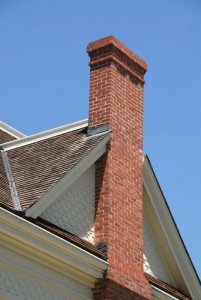Does Your Chimney Have Draft Problems?
November has begun, which means fall is closing in on its halfway point already. Especially in the northeast, this means less daylight and colder temperatures. Most people have given up on wearing sandals and shorts, and instead, they do not leave the house without at least a jacket and a scarf. Homeowners have likely resorted to heating up their homes at least once this season, and for those with fireplaces or stoves, that may mean lighting up a toasty fire. While many people have a basic idea of how the chimney works, using the fireplace most effectively might require a little more knowledge. Specifically, if you want to save more money by avoiding draft problems with your chimney, you may want to read on for how to catch the problem and resolve it.
Chimneys function based on the idea that hot air rises. When a fire has been lit in the fireplace, the hot gases produced by it are less dense than the surrounding air, so the hot air moves up through the chimney. Fires are generally burned during the fall and winter seasons, so the riding hot air eventually meets the colder, denser, outside air somewhere in the chimney. This pressure differential results in an upward pull on the air, creating an air flow known as a “draft.” The draft pulls the air from the home into the fire, fueling it with oxygen, and then sends the smoke and gases from the fire outside through the chimney. When this process does not happen properly, you run into what is known as a draft problem.
Draft problems can occur for a few different reasons, but no matter how you spin it, they cost you money. One common draft problem is an oversized chimney. With older fireplaces especially, large chimneys are a common problem. The wider a chimney is the more space the hot air can spread out in, which means the air cools faster and rises slower. With the rise of air significantly slowed down, the pull of the draft loses its strength. This can cause your fire to burn at a cooler temperature or even go out completely. Your mason can remedy this problem by determining the proper chimney width your fireplace and chimney require and installing a flue lining to match.
A chimney that is too short can also cause a draft problem. The taller your chimney is, the more powerful the draft will be. Therefore, if your chimney is too short, a common issue in older bungalows or ranch homes, it cannot create an adequate draft to keep a strong, hot fire going. While this issue is more expensive to address, your mason can walk you through the process of adding height to your chimney. This will save you money in the long run by preventing cold air from creating a draft going into your home instead of out.
If you worry about draft problems costing your money in your home, contact your local mason today. The area of Boston and North Shore, Massachusetts and Portland, Maine are all served by Billy Sweet Chimney Sweep, so if you live in one of these areas, contact Billy Sweet for a professional consultation.

